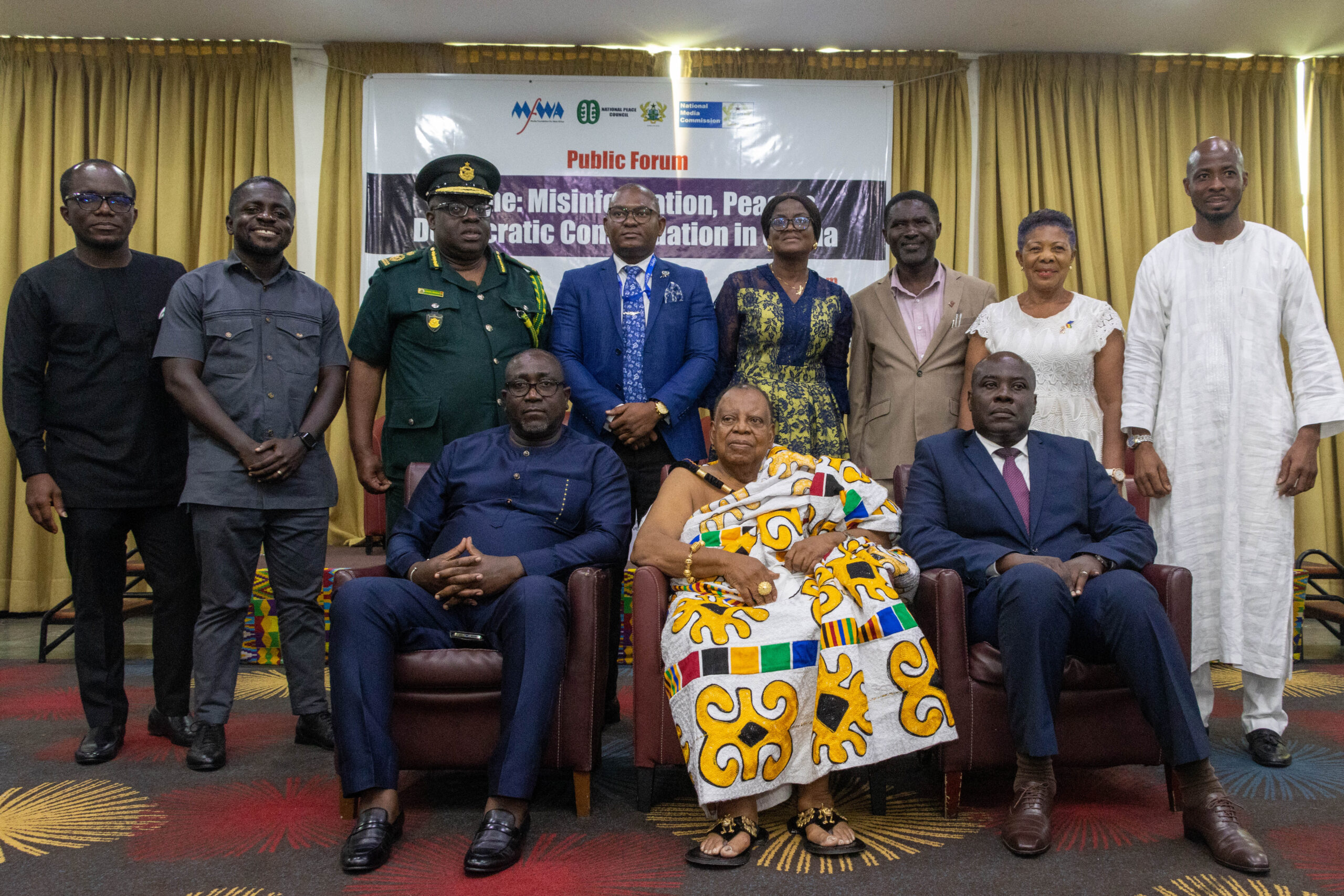The Media Foundation for West Africa (MFWA) welcomes the adoption by consensus of the landmark UN Human Rights Council Resolution A/HRC/58/L.27/Rev.1 on Human Rights Defenders and New and Emerging Technologies.
The resolution, adopted during the Council’s 58th Session on 4 April 2025, sets out the Council’s position on the protection of human rights defenders in the digital age.
Led by Norway and co-sponsored by over 50 countries, including Malawi, the only African State sponsor, the resolution marks a significant step forward in tackling the growing digital threats faced by human rights defenders, journalists, and civil society actors. These threats are particularly acute in West Africa, where internet shutdowns, surveillance, and judicial harassment are increasingly deployed to suppress dissent.
Opposing internet shutdowns and protecting digital rights
The resolution “strongly condemns the use of Internet shutdowns, including the blocking of access to communication platforms, to intentionally and arbitrarily prevent or disrupt access to or dissemination of information online, which is inconsistent with international law.”
In the past five years, West Africa has witnessed politically motivated internet disruptions in Senegal, Mauritania, Guinea, Burkina Faso, Sierra Leone, and Togo. The MFWA urges States to legislate against such practices and calls on stakeholders to consistently engage governments on the crucial role of internet access in supporting informed voting, election transparency, and citizen safety before, during, and after elections.
Opposing arbitrary surveillance and spyware abuse
The MFWA has consistently raised concerns about the use of spyware tools such as Pegasus to target investigative journalists in the region.
The resolution expresses deep concern over the misuse of surveillance technologies developed by private industry “to undertake surveillance, hacking of devices and systems… interfering with the professional and private lives of individuals, including human rights defenders.”
The MFWA welcomes the resolution’s promotion of encryption and privacy-preserving tools. With growing digital insecurity in West Africa, such protections are essential for the safety of journalists and activists. The MFWA has urged media owners and managers to prioritise the acquisition of encryption technology and invest in capacity building for journalists to secure their tools and stay safe on digital platforms.
The resolution also calls on States “to ensure that the criminalisation and prosecution of terrorism, cyber-crimes or national security offences… avoid criminalisation of human rights defenders or unduly hindering their work.” The MFWA supports this and further calls on West African governments to amend or repeal vague cybercrime laws often used to criminalise free expression and critical journalism, including in Nigeria, Sierra Leone, and Niger.
Ending attacks on human rights defenders and journalists
The resolution strongly condemns the criminalisation, intimidation, attacks, torture, enforced disappearance and killing of human rights defenders by both State and non-State actors. It calls on governments to “combat impunity by conducting prompt, impartial and independent investigations and pursuing accountability for all forms of violations, abuses and threats.”
The MFWA urges West African governments to take genuine steps to address impunity for violence against journalists, including arbitrary arrests, physical assaults, and the misuse of cybercrime and national security laws to detain media professionals.
Tackling SLAPPs and legal harassment
The resolution also addresses the misuse of the law to stifle dissent. In Ghana, Senegal, Niger, Nigeria, Côte d’Ivoire, Guinea and elsewhere in the region, critical voices are increasingly targeted with frivolous defamation suits or malicious prosecutions under broad cybercrime or misinformation provisions.
In response to this persistent trend of legal harassment, the MFWA has established the West Africa Network of Media and Digital Expression Lawyers (WANAMDEL) to provide timely legal assistance to victims. It has also supported journalists in Guinea-Bissau, Guinea, Senegal, Cape Verde, and Ghana with training to help them avoid legal traps and defamation suits.
The MFWA supports the resolution’s call for States “to adopt and implement laws and policies that discourage strategic lawsuits against public participation targeting journalists, media outlets, and human rights defenders.” The MFWA also calls on ECOWAS to work with stakeholders to develop a regional anti-SLAPP framework, including early dismissal mechanisms and protections for press freedom.
Gendered online violence and protection for women defenders
The MFWA strongly endorses the resolution’s focus on gendered digital threats. Across West Africa, women journalists and other women public figures face targeted online abuse and disinformation campaigns.
The resolution “condemns unequivocally online attacks against women and girls, including sexual and gender-based violence and abuse… such as doxxing, deep-faking, the sharing of intimate images, whether real or simulated, cyberstalking and online harassment.”
As part of its work on digital rights and gender justice, the MFWA monitored online abuse targeting female politicians in Ghana ahead of the 2024 elections and contributed to national awareness and evidence-based advocacy on digital safety for women. The initiative produced a mapping report highlighting the prevalence and nature of online gender-based violence (OGBV) against women in politics and supported media partners to amplify the findings and drive public dialogue.
The MFWA, therefore, supports this resolution unreservedly and urges national authorities to adopt gender-responsive policies and ensure accountability for digital violence.
Towards regional action and engagement
The resolution “requests the Office of the United Nations High Commissioner for Human Rights to convene three regional workshops…to assess risks created by digital technologies to human rights defenders and best practices to respond to these concerns.”
The MFWA sees this as a pivotal opportunity and advocates for a dedicated West African dialogue on digital rights in partnership with the United Nations and ECOWAS. The organisation will continue to monitor government compliance with the resolution’s provisions, support legal challenges to digital rights violations, and amplify the voices of women journalists and civil society actors working under threat.






